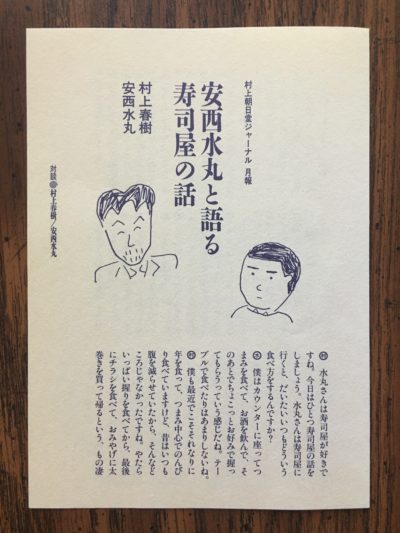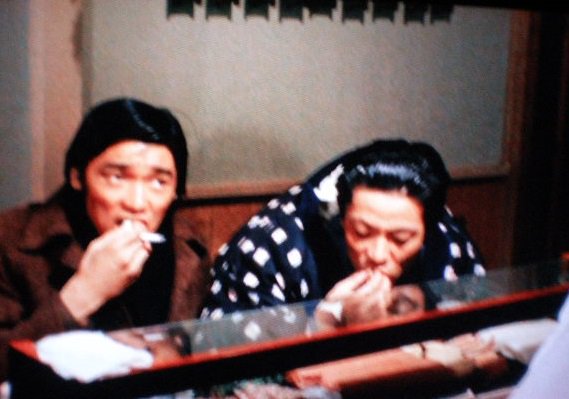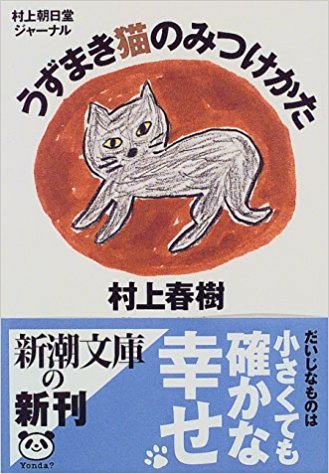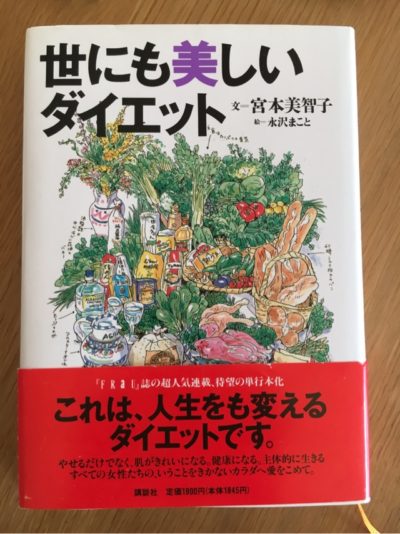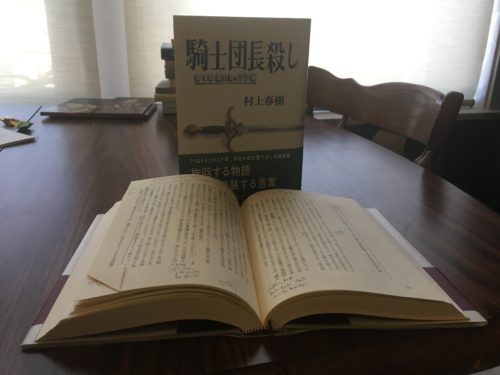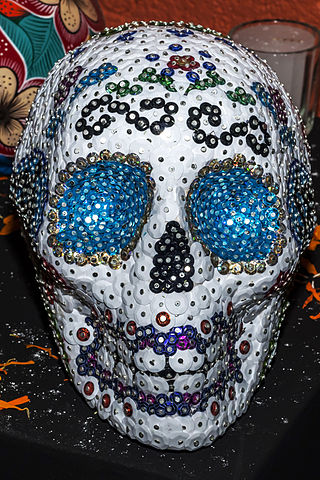
Chapter 36 “Accordion” is a very short chapter in which Watashi seems to discover the secrets of the Town: it’s all part of himself. He and the Librarian are in the stacks, and she comes to the conclusion that the accordion and music might be the key to discovering the lost bits of her mind. Watashi plays random notes and chords and then stumbles upon the tune to “Danny Boy” while letting his thoughts drift out over the Town and its residents. The skulls light up with bits of the Librarian’s mind, and he begins to try and separate them for her.
There aren’t many changes in this chapter. A few minor adjustments and creative translations. The one major adjustment by Birnbaum (or his editor) comes, as usual, at the end of the chapter, but he takes the opposite of his usual approach and ends with the narrator’s thoughts rather than actions. Here is the official English translation:
She surveys the rows of softly glowing skulls before exiting the stacks. The door closes behind her. The flecks of light dance upon the skulls. Some are old dreams that are hers, some are old dreams of my own.
My search has been a long one. It has taken me to every corner of this walled Town, but at last I have found the mind we have lost. (370)
You’ll see that Birnbaum lops of the last line:
彼女はもう一度肯いて光り輝く頭骨の列を眺めわたし、それから書庫を出て行った。ドアが閉まると、僕は壁に持たれて頭骨にちりばめられた無数の光の粒をじっといつまでも見つめていた。その光は彼女の抱いていた古い夢でもあり、同時に僕自身の古い夢でもあった。僕は壁に囲まれたこの街の中で長い道のりを辿ってやっとそれにめぐりあうことができたのだ。
僕は頭骨のひとつをとり、それに手をあててそっと目を閉じた。 (544)
She nods once more, looks over the rows of brightly glowing skulls, and then leaves the stacks. When the door closes, I lean against the wall and stare endlessly at the countless flecks of light studding the skulls. The lights are old dreams she had, and at the same time they are my own old dreams. I’ve followed a long journey through the Town surrounded by a wall so that I can finally encounter them.
I take one of the skulls, place my hands on it, and gently close my eyes.
I had to borrow “flecks” for 粒 (tsubu, drops) because it was just too perfect. Birnbaum has typically corrected Murakami by cutting the narrator’s thoughts at the end of chapter, leaving things in media res. His translation of Watashi’s thoughts here are compelling, especially the creative rendering of the long journey, so I can go either way with this.
Murakami makes one adjustment to the Complete Works edition in this chapter, and as usual it is minor and curious, but it comes at such a critical time in the text. Here is a section of the official translation where the Librarian realizes the key:
“Do you have your accordion?” she asks.
“The accordion?” I question.
“Yes, it may be the key. The accordion is connected to song, song is connected to my mother, my mother is connected to my mind. Could that be right?”
“It does follow,” I say, “though one important link is missing from the chain. I cannot recall a single song.”
“It need not be a song.”
I retrieve the accordion from the pocket of my coat and sit beside her again, instrument in hand. … (367)
And here is my rendering of the original, to show you how Birnbaum is working:
「たぶん手風琴よ」と彼女は言った。「きっとそれが鍵なんだわ」
「手風琴?」と僕は言った。
「筋がとおってるわ。手風琴は唄に結びついて、唄は私の母に結びついて、私の母は私の心のきれはしに結びついている。そうじゃない?」
「たしかに君の言うとおりだ」と僕は言った。「それで筋がとおっている。たぶんそれが鍵だろう。でも大事なリンクがひとつ抜けている。僕には唄というものをひとつとして思いだすことができないんだ」
「唄じゃなくてもいいわ。その手風琴の音を少しだけでも私に聴かせてくれることはできる?」
「できるよ」と僕は言った。そして僕は書庫を出てストーヴのわきにかかったコートのポケットから手風琴をとりだし、それを持って彼女のとなりに座った。(283-284)
“It might be the accordion,” she says. “That must be the key.”
“The accordion?” I say.
“It makes sense. The accordion is linked to songs, songs to my mother, and my mother to the fragments of my mind. Right?”
“Yes, what you say is true,” I say. “It makes sense. It must be the key. But there’s one big connection missing: I am unable to recall a single song.”
“It doesn’t have to be a song. Can you just play the sounds of the accordion for me a bit?”
“I can,” I say. Then I leave the stacks and take the accordion from the pocket of my coat hanging by the stove. I bring it and sit next to her.
As you can see, Birnbaum makes a few minor cuts and adjustments, but nothing major. Here is what Murakami chooses to edit in the Complete Works edition:
「たぶん手風琴よ」と彼女は言った。「きっとそれが鍵なんだわ」
「手風琴?」と僕は言った。
「筋がとおってるわ。手風琴は唄に結びついて、唄は私の母に結びついて、私の母は私の心のきれはしに結びついている。そうじゃない?」
僕は書庫を出てストーヴのわきにかかったコートのポケットから手風琴をとりだし、それを持って彼女のとなりに座った。 (540)
“It might be the accordion,” she says. “That must be the key.”
“The accordion?” I say.
“It makes sense. The accordion is linked to songs, songs to my mother, and my mother to the fragments of my mind. Right?”
I leave the stacks and take the accordion from the pocket of my coat hanging by the stove. I bring it and sit next to her.
I guess the lines about him not being able to recall a song isn’t that important? But it does add to the suspense, to the stakes of this scene a little. It emphasizes how much he’s searching for this music within himself. The cuts don’t really make the chapter all that much more efficient. But they are pretty characteristic of some of the minor tweaks that Murakami has made throughout. I can imagine him rereading the text and muttering, “Well why did I do that? I guess we don’t need that bit.”
Four more chapters to go.

